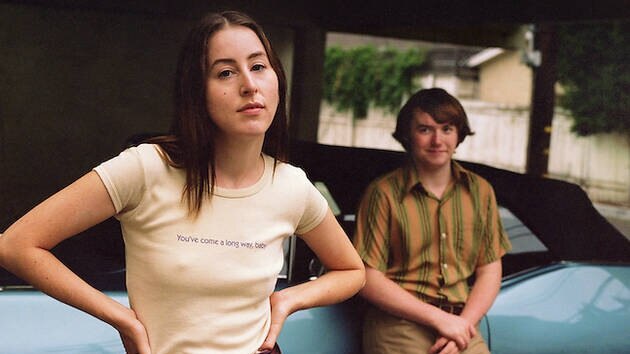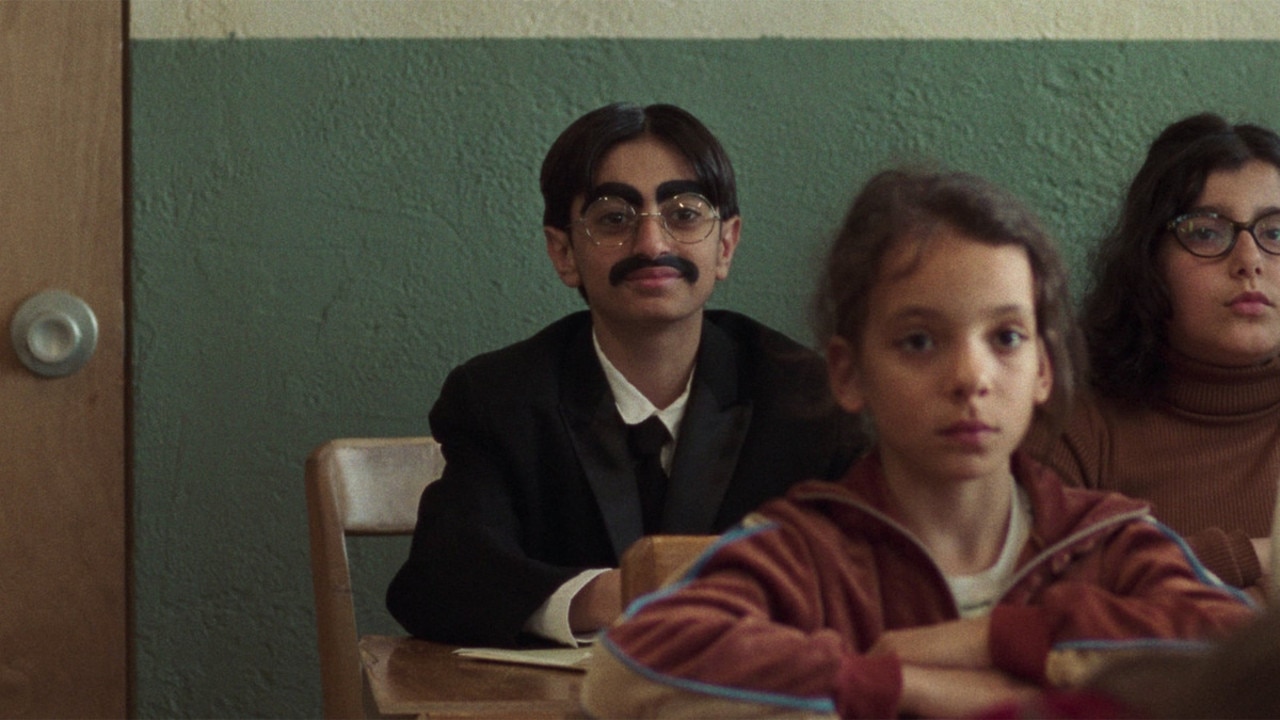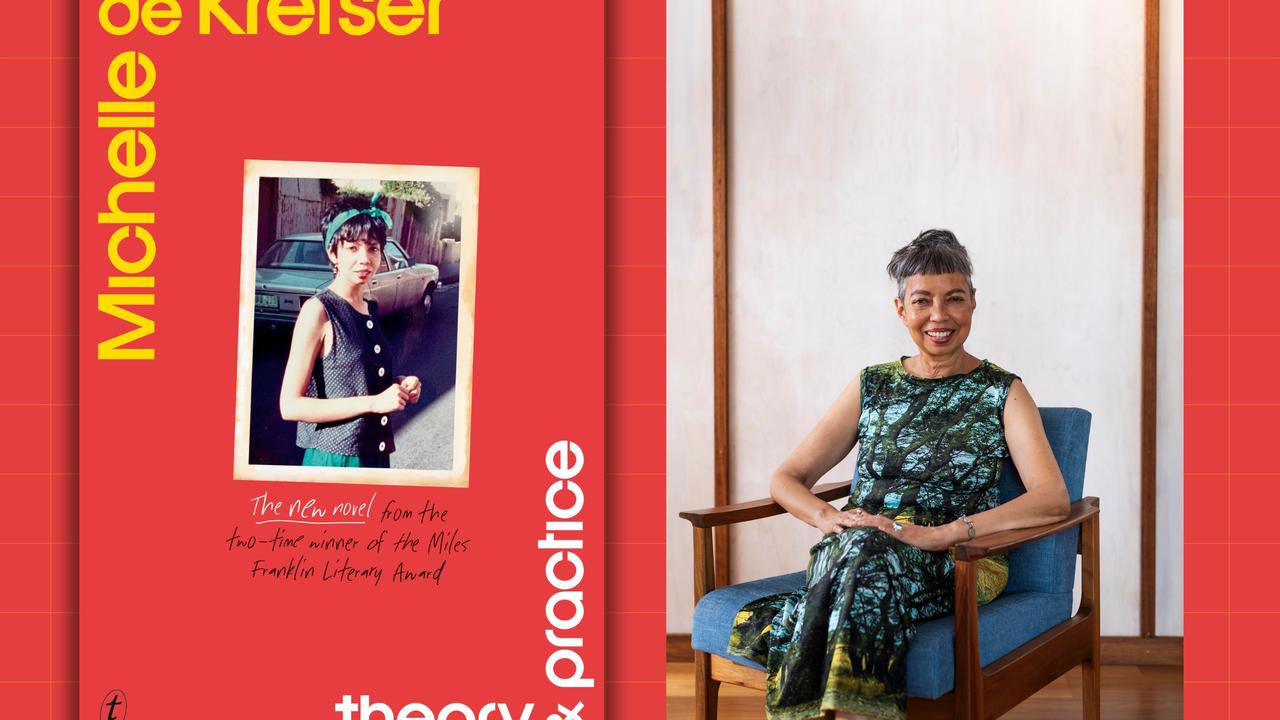Extraordinary film eyes Oscars glory for Paul Thomas Anderson
The American director Paul Thomas Anderson makes films that are not like anyone else’s. Each is a must-see, but Licorice Pizza just might be his best one yet.

Licorice Pizza (MA15+)
In cinemas
Stephen Romei
★★★★½
The American director Paul Thomas Anderson makes films that are not like anyone else’s, including his own, which include Boogie Nights (1997), Magnolia (1999), for which Tom Cruise should have won an Oscar, There Will Be Blood (2007), The Master (2012) and Phantom Thread (2017). Each is a must-see film but Licorice Pizza just might be his best one yet.
Aside from knowing that Anderson was the director, scriptwriter and cinematographer (along with Michael Bauman), I knew nothing about this movie before seeing it and that might be the perfect frame of mind in which to see it.
I left the cinema 133 minutes later thinking, “This is an extraordinary movie. How on earth did he come up with this idea and that idea?” I now know some of the answers but I will not reveal too much as I think people will have more fun finding out for themselves.
The two leads, musician Alana Haim and Cooper Hoffman, each in their feature film debut, are remarkable.
As I watched, not knowing their names, the male lead reminded me of the late, great Philip Seymour Hoffman. Well, as the name suggests, there is a link there: Cooper is his son.
The year is 1973 and the setting is Los Angeles County’s San Fernando Valley. Hoffman is 15-year-old Gary Valentine, a confident child actor. Haim is Alana Kane, 25-year-old photographer’s assistant who is frustrated with her lot.
In a marvellous extended opening scene, one that hums with character-setting dialogue, they meet during a school photos session and the boy falls for the woman.
He tells his younger brother he has met the girl he will marry. She dismisses him as a kid, which he is, with the pimples to prove it. She is Jewish and she and her two sisters still live at home.
The whole family is the actor’s real family: her sisters (who are also her bandmates in the pop group Haim) and her mother and father. They are all remarkable. The director is a family friend and has shot the band’s videos.
Gary is young but successful and ambitious. He improvises when he’s told not to. He has made a movie with the comic star Lucy Doolittle (Christine Ebersole). No prizes for guessing who that character is based on. As the 1970s kicks into overdrive he sees other money-making opportunities, including waterbeds – “Made with 100 per cent Arabian vinyl” – and pinball machines.
This is where I started asking: “How did he make this up?” The answer is that he didn’t, but how much of it is true and who Gary is based on is something I’ll leave for viewers to find out.
The main plot line is Gary’s romantic pursuit of Alana but there are lots of detours, some of which involve an incredible duo: Sean Penn as a motorcycle-riding star actor named Jack Holden and Tom Waits as a director named Rex Blau (look up the 1954 war movie The Bridges at Toko-Ri).
It’s all wonderful to watch. Perhaps the best scene, though, involves Gary, Alana, a large truck, the oil shortage, Richard Nixon on the TV news, David Bowie singing Life on Mars (the soundtrack is spot-on), a waterbed and the hairdresser turned film producer Jon Peters, live-in lover of Barbra Streisand, who allowed his name to be used.
He is played at 150 per cent by Bradley Cooper, one of many name actors who pop up. John C. Reilly is Fred Gwynne, the actor better known as Herman Munster. John Michael Higgins is hilarious as Jerry Frick, the founder of the Mikado, the first Japanese restaurant in the San Fernando Valley. Though I should note that this part of the film has been criticised for perpetuating racist stereotypes.
On one level, Licorice Pizza is a coming of age story. The title comes from a now-defunct record store chain that had a celebrated store in LA. The 51-year-old director, who grew up in the area, has said the two words, licorice and pizza, sort of sum up the immediate gratification aims of his late childhood.
On another level, this personal film can be seen as Anderson’s version of Quentin Tarantino’s Once Upon a Time … In Hollywood. Very different films but each love letters to a different time and a place as it once was. As is Kenneth Branagh’s magnificent, bittersweet Belfast, which is in cinemas next week.
Anderson received best director nominations for There Will Be Blood and Phantom Thread. I will be surprised if he is not up for the third time when the Oscar nominations are announced on February 8.
There is a brilliant moment towards the end of Licorice Pizza that re-shows in one sequence different times where Gary, Alana and others are running. I think it goes to what this film, Anderson’s ninth, is about: people running, running, running – but to what, or away from what?
-
The Hating Game (M)
In Cinemas
★★★
The entertaining romantic comedy The Hating Game is based on the best-selling 2016 debut novel of Canberra writer Sally Thorne. It’s set in New York City and centres on apublishing house.
The set-up is timely. Two publishing firms have merged. One bases its business model on the belief that literature is art.The other on “ghostwritten autobiographies of brain-damaged sports stars”.
No prizes for guessing which one went into bankruptcy and had to be bailed out by the other. The first is run by Helene (SakinaJaffrey), the second by Bexley (Corbin Bernsen).
This amusing exchange between them sums up the merged office dynamic:
Bexley: “If people want a book on donkey farts, I’ll ride the donkey all the way to the bank.”
Helene: “This is what I get for selling my soul to Mephistopheles.”
Bexley: “Who?”
The two main characters, Lucy (Lucy Hale) and Joshua (Austen Stowell), are the second-in-command on each side.
They share an office, facing each other across their desks all day. She admits he’s handsome but reminds herself, via Shakespeare,that “fair is foul”.
She does not add the next bit of that line from Macbeth – “foul is fair” – but this paradoxical thought underpins the dramaof this 102-minute movie directed by Peter Hutchings (Then Came You) and adapted from the novel by the poet and screenwriterChristina Mengert.
The two warring bosses have decided to appoint a managing director. Lucy and Joshua are the front runners. She has a master’sin Victorian literature, he has a Harvard MBA. More importantly, for the purposes of this film, it’s obvious they have thehots for each other. Early on they are in a lift together and he presses the emergency stop switch.
When security comes over the intercom, he says, “Sorry, just bumped the button.” If that doesn’t signal the likelihood ofsex in this city, nothing will.
Yet what lies behind what seems to be a fatal attraction? Is he, the “American psycho” as she calls him at the start, usingher, or is she, a collector of Smurfs, using him, each with a plan to land the top job? Or is it possible they are in love?
There are some decent twists, especially when we learn of Joshua’s family history, and the chemistry between the two starsripples with possibility.
This is a good Friday night film, one to enjoy without having to think, as Lucy would like us to do, about a book by an autisticarchaeologist. The in-house debate over the cover design of that book, titled Stripping Time, is funny because it’s closeto what does happen in the publishing world.




To join the conversation, please log in. Don't have an account? Register
Join the conversation, you are commenting as Logout